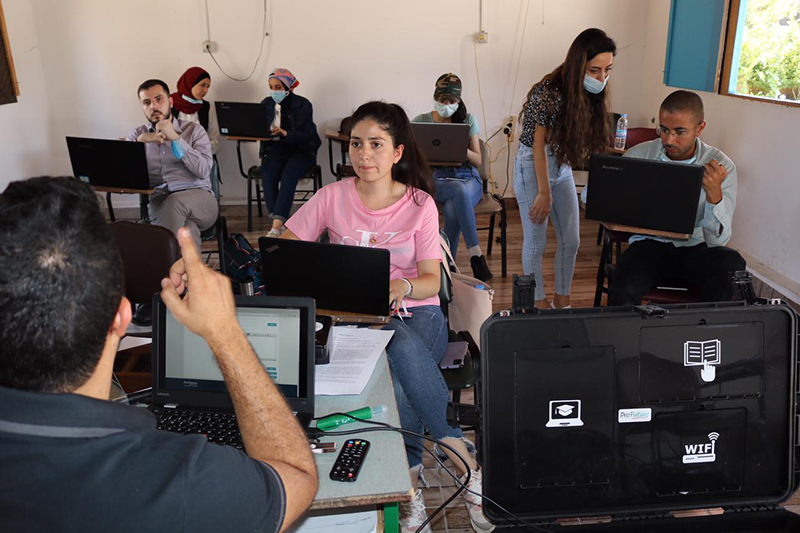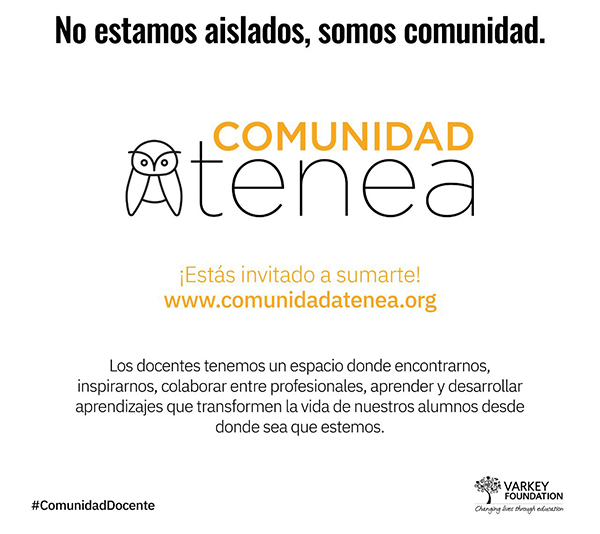Do you think Rafa Nadal would have got where he has without a good coach? Anyone who has taken up a sport understands the fundamental importance of having a good coach to improve his/her proficiency in it. Someone trained and knowledgeable, someone who knows how to guide the athlete towards achieve his/her sporting goals.
Continuing with the sporting metaphor, what comes to mind when we think of training? We think of someone who seeks a goal and, in order to achieve it, develops intensive, constant and structured work focused on improving his/her performance. Let’s transfer the above to the world of education in order to understand what a teaching coach is.
What’s instructional coaching?
A teaching coach is a trained and knowledgeable professional who knows how to take teachers (and heads) from where they are to where they want to be (Burns, 2020). In education, as in sport, the task of a coach is to make people work better in their professions and become better professionals.
Instructional coaching is a form of career development for teachers which, in recent years, has gained ground in all countries and contexts. However, there’s still a degree of conceptual confusion and so, before going any further, we’ll take a look at the specific characteristics that coaching must have in order to be considered as such.
First of all, coaching must be geared towards a specific goal. We strive to develop specific skills that lead to better student learning. Ideally, moreover, the specific skills that are developed differ in keeping with the needs of each individual teacher (Kraft and Blazar, 2018).
This is why it’s also a structured learning process in line with this objective. The coaching is analytical and based on an examination of the situation that includes observation and feedback. The coach breaks down complex behaviour into its constituent elements to enable teachers to understand these components and how each of them works (Burns, 2020). The coaches shape research-based practices and work with the teachers to incorporate these practices into their classrooms (Kraft and Blazar, 2018).
Finally, during the coaching the interactions are constant and sustained over time (for example, they can last a semester or a whole school year).
Does it work?
Although evidence of the functioning of this methodology for teachers’ career development is still scarce, the results of some studies that have been conducted are promising. For example, a meta-analysis carried out by researchers at Harvard University and Brown University that examined 60 studies showed that, if it’s done properly, coaching can have a really positive effect on both the teaching practice and the students’ performance. More specifically, the quality of the teachers’ teaching improves as much as or more than the difference in effectiveness between a novice teacher and one with five to ten years’ experience (Kraft et al., 2018). However, as the authors of the study warn, the improvement observed in the teaching practice is significantly greater than the resulting impact on the student outcomes.
Coaching, if done well, has great positive effects on both teaching practice and student performance.
What else did the Harvard and Brown researchers observe?
- The quality of the coach is more important than the number of sessions.
- There’s little difference between the effectiveness of the coaching programmes delivered online and in person.
- The effectiveness of the programme falls as the number of teachers involved in the programme increases. The above could be due to reasons related to the quality of the coach, financial constraints, standardisation, the teachers’ commitment and the academic climate.
We’ll focus on these challenges below.
How to scale up a teacher coaching programme
- Coach quality: One of the main challenges in extending coaching programmes is finding enough expert coaches capable of delivering these services, which are the key to the intervention. Expanding from a small group of coaches to a large workforce requires new recruitment, selection and training systems. In this regard, Kraft and Blazar suggest intensifying the research that attempts to understand the characteristics and skills of effective coaches.
- Financial constraints: teacher training is a relatively expensive form of career development, due to the high personnel costs involved in recruiting coaches to meet the teachers on a regular basis (Kraft and Blazar, 2018).
- Standardisation: extending the coaching may require the creation of more formal systems and structures to ensure loyalty to the programme. However, this may be to the detriment of the coach’s ability to tailor his/her approach to the individual needs of each teacher. To prevent this risk, the programme developers need to think critically about how to implement these structures to support the coaches without restricting their flexibility.
- The teachers’ commitment and the academic climate: expanding the coaching programmes may require the involvement of teachers who are resistant to change. In this regard, the heads of the schools have a key role to play when it comes to creating a culture of trust and respect between the administrators and staff in order to alleviate the teachers’ concerns and increase their willingness to actively participate.
What about virtual coaching?
Could virtual coaching address some of the difficulties faced when scaling up these programmes and extending them to certain vulnerable environments? For example, those related to funding, the lack of qualified coaches, distance and geography.
What does the evidence say? It’s important to start by saying that research into the effectiveness of virtual coaching and improving the performance of teachers, especially in resource-poor settings, is in its infancy, as a result of which there isn’t a solid body of evidence yet and in some cases the results of the different studies can be contradictory.
For example, there are some high-quality studies that suggest that virtual coaching is more cost-effective than in-person coaching and that in-person and virtual coaching interventions can be equally effective in improving the students’ performance (Burns, 2021). However, there is also evidence to suggest that the purely virtual format may be the least effective of the three (in-person, hybrid and virtual) (Burns, 2021).
As we saw during the pandemic, although the evidence regarding this is still incipient too, virtual coaching can essentially mimic in-person coaching and ensure a degree of continuity of support and learning for the teachers, whether they’re teaching online or face-to-face (Burns, 2021). In any event, hybrid coaching, which combines the face-to-face nature of some activities with the virtual characteristics of others, could greatly facilitate the implementation of this form of career development in certain environments in which circumstances make the existence of in-person coaching difficult. Moreover, in some cases, virtuality may even increase motivation and enthusiasm, resulting in improved performances (Burns, 2021).
Virtual or in-person, the fact is that instructional coaching is a growing trend that’s gaining momentum, due to the element of personalisation and the effectiveness it’s demonstrating as a form of career development for teachers. More research is needed to address some of the challenges facing its large-scale application in vulnerable environments. In the meantime, with the evidence that now exists to demonstrate its effectiveness and its impact on the students’ learning, we can move forward with its implementation.
In future posts we’ll focus on different experiences specifying varying support formulas to improve the educational quality.
REFERENCES
Burns, M. (2020). Getting started with teacher coaching in international education programs. GPE (Blog). https://www.globalpartnership.org/blog/getting-started-teacher-coaching-international-education-programs
Burns, M. (2021). Can virtual coaching be an effective substitute for in-person coaching? GPE Blog https://www.globalpartnership.org/blog/can-virtual-coaching-be-effective-substitute-person-coaching
Kraft, M.A. and Blazar, D. (2018). Taking teacher coaching to scale: can personalized training become standard practice. Education Next, 18(4), 68-74.
Kraft, M.A., Blazar D. and Hogan D. (2018). The Effect of Teacher Coaching on Instruction and Achievement: A Meta-Analysis of the Causal Evidence. Review of Educational Research, 88 (4):547-588.
Header image pikisuperstar for Freepik.






